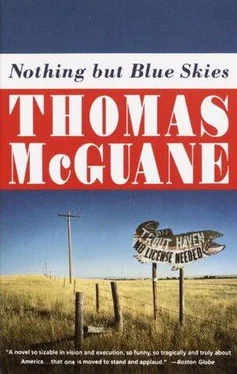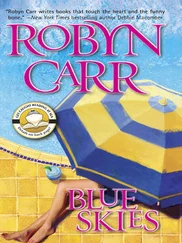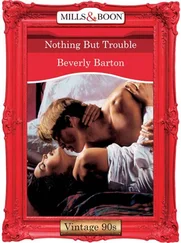He awoke alone in the cell, filled with dread. He very slowly allowed a few details to seep in, wincing at each one. He sat up and gazed at the drain in the floor. A few apologies in order, he thought, one or two at least. A glance at the high window and he could see it was dark. He thought back: drinking started in the morning, must’ve been hauled in around midday. He went to the door of the cell and called out. An officer he didn’t recognize came to the door. Just then, he remembered his remarks to Sheriff Hykema. The present policeman looked like an old pensioner with remarkable bags under his eyes.
“You ready to go?”
“It’d be nice.”
“Sheriff said to send you home when you woke up.”
“What time is it?”
“Few minutes after eight.”
That seemed like an especially odd time to Frank. He must have slept all afternoon.
“When did the other guys leave?”
“A long time ago. You slept right through it.”
He felt he was rising from the dead. That was about as much loss of control as he could stand. The officer opened the cell door and Frank followed him out. He had a few things returned, watch, wallet, car keys. “Where’s Sheriff Hykema?”
“Gone home.”
“Where’s he live?”
“Quartz Canyon.”
At Frank’s request, the officer wrote the sheriff’s address down on a scrap of paper. “Your stay will cost you a few bucks, one way or another. You mind stopping back and taking care of it?”
“Not at all. You have any idea how much?”
“Maybe a hundred bucks,” said the old policeman.
Frank knocked on the front door of the sheriff’s small lilac-surrounded house in Quartz Canyon. He could hear a great horned owl in the woods nearby and there was a stirring canopy of stars that seemed just higher than the house itself. Frank craned his head back and stared at them when the door opened. A sixteen-year-old boy with a blue and orange Mohawk haircut answered the door. Under this warlike hairdo was the face of a child.
“I’m Frank Copenhaver. Is Sheriff Hykema in?”
“Yes, you want to come in?” Frank followed the boy into the hall, where he saw the sheriff’s gray uniform jacket and three or four Stetson hats. “Dad!” the boy called. In a moment, the sheriff appeared in his stocking feet and introduced Frank to his son Boyce. Frank and Boyce shook hands gravely.
“Come on in,” said Sheriff Hykema, and Frank followed him into a nearly dark den where a baseball game was on television. Hykema picked up the channel changer and muted the game, then gestured for Frank to sit in one of the deep chairs that faced the television. Hykema sat in the other.
“How you feeling?”
“Better than I deserve. I’m afraid I remember a couple of things I said to you last night —”
“This morning.”
“Right. And I sure apologize.”
“Don’t give it a thought,” Hykema said. “Let me see if they’re going to call that foul.” He turned the sound back on for a moment, then off again.
“Well, I am sorry.”
“I hear that sort of thing every day.”
“Well, I wish it hadn’t happened, but it did.”
Hykema gave him a long look, disinterested, almost scientific in its detachment. “You must have had a lot on your mind.”
Frank was able to meet his gaze. They both seemed to drift off on very different tracks, lit by the pale green image of the baseball diamond on television. It was very quiet. Suddenly, the sheriff seemed to come back into focus. He clapped his big hands down onto the thick fabric of the arms of his chair. “Copenhaver,” he said, “that’s the first time we’ve had you down at the jailhouse. I don’t know what your problem is, but when folks start appearing there, it usually ain’t an accident. A big portion of them keep reappearing until something real bad happens and then it’s too late to go back to where the problem started.”
Frank felt a ticklish surge to be receiving sincere advice. He could tell that his gratitude seemed a little out of place to Hykema, or exaggerated, further proof he had lost track of the normal. “I like to think it was an isolated event,” he said.
“I like to think it was an isolated event too. But a lot of times it isn’t.”
“That’s good to know,” said Frank. Everyone was so helpful.
Frank lay in his bed and listened to an educational radio program sponsored by the National Endowment for the Arts, some kind of marathon in progress about the relationships between men and women. Frank paid attention for a while. There seemed to be an invisible audience that gave the background a hint of poll tax riots. A woman with the tiniest voice imaginable read a paper, “Pocahontas, First Governor of Virginia,” which was challenged by a man who sounded as if he were trying to talk around his pipe stem and who said that the myth of the coping female had led to nationalistic suicide in the South and to “the recycled panty hose of Robert E. Lee.” Frank’s feeling that he was already out of balance was exacerbated by this educational radio program and he turned it off with a diving twist of the knob. He lay in the dark wondering why he could be so disoriented by a program sent out to Americans by a happy government whose work resembled that of kindly parents who distributed colored eggs in the hedge and the garden the night before Easter. But maybe there was just too much spin on the eggs.
He managed to sleep through the night, off and on, breaking into the occasional moan and going to the bathroom three or four times just to have something to do. Day came in a gray opening of minor renewal. Frank got up and clung to his routines of breakfast and bathing. When he shaved, he examined his face over and over with his hand to check for missed spots. This day could be set back easily by a missed spot, a lone whisker in a weird place. He put on polished cotton slacks and blue socks, a pair of Church’s English oxfords, a green-striped Egyptian cotton shirt and a green and red silk tie. He brushed his hair until not one hair was out of line and his scalp tingled sharply. He applied St. Johns bay rum. He put on a light gray seersucker jacket and stood in front of the floor-length mirror raising and lowering his chin until it was at just the exact level. He tried smiling mirthlessly, then let it go back to neutral. He smiled sincerely and decided that he still got a pretty big reading off a sincere-looking smile even though, as was usual in business, it was apropos of nothing. Then he headed for the Holiday Inn for the early bird breakfast and there was June.
“Oh, God,” she said, “join me.”
“Are you sure?”
“I’m sure. What’ve you been doing?”
“I was in jail yesterday.”
“I thought they’d have you in.”
“No, this was different. This was a bar scrape.”
“Who started it?”
“I did.”
“Shame on you. That’s the old you.”
Frank told her about the experiment in front of the dressing mirror, trying out different expressions, preparing for insincerity. He said most of it was about conquering women, no matter how deeply it was buried.
“What is it about you guys?” she said.
“I know,” said Frank. “Something’s not right.”
“You know, we get horny too.”
“Yes, I know.”
“But we don’t go around trying to lead platoons over it.”
“Yes, yes, we couldn’t be bigger pigs,” he demurred.
“A couple of nights ago, I was feeling the strain,” said June. “I rented an X-rated video.”
“No.”
“Called Businessman’s Lunch .”
“How was it?”
“Terrible. The main character was certainly not a businessman. You would have been irate. They put him in front of a row of boxes with a clipboard in his hand and had him pretend to go over the inventory.” June’s rather loud and raspy voice got her an audience once again, the usual airline personnel and early delivery people, not many, half a dozen or so sleepy eaters waiting for their coffee to work. Then the waitress interrupted things and they ordered. When the waitress left, June resumed. Frank thought that by looking around boldly he could keep people from listening, but it was hopeless.
Читать дальше












